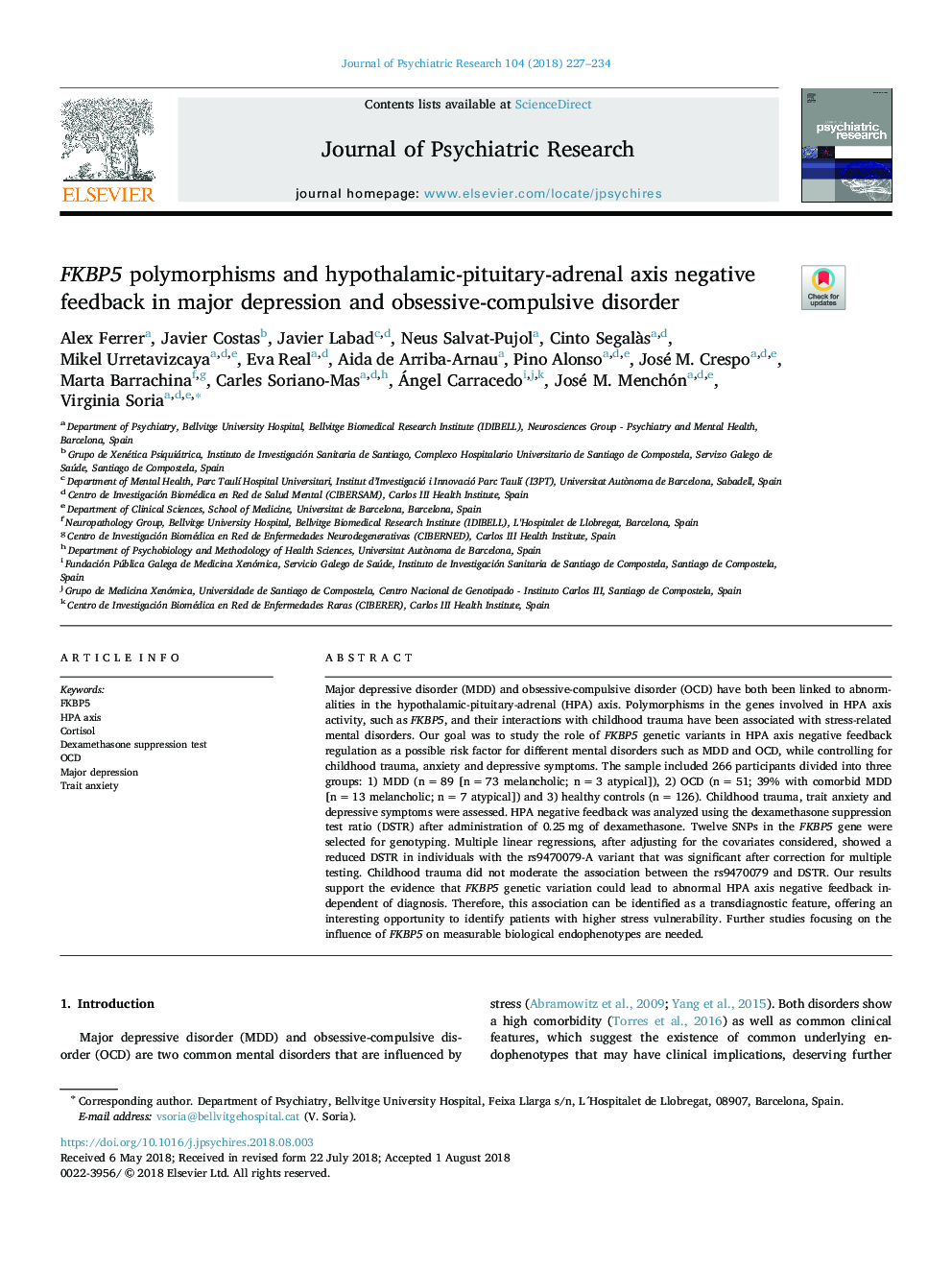| Article ID | Journal | Published Year | Pages | File Type |
|---|---|---|---|---|
| 6799426 | Journal of Psychiatric Research | 2018 | 8 Pages |
Abstract
Major depressive disorder (MDD) and obsessive-compulsive disorder (OCD) have both been linked to abnormalities in the hypothalamic-pituitary-adrenal (HPA) axis. Polymorphisms in the genes involved in HPA axis activity, such as FKBP5, and their interactions with childhood trauma have been associated with stress-related mental disorders. Our goal was to study the role of FKBP5 genetic variants in HPA axis negative feedback regulation as a possible risk factor for different mental disorders such as MDD and OCD, while controlling for childhood trauma, anxiety and depressive symptoms. The sample included 266 participants divided into three groups: 1) MDD (nâ¯=â¯89 [nâ¯=â¯73 melancholic; nâ¯=â¯3 atypical]), 2) OCD (nâ¯=â¯51; 39% with comorbid MDD [nâ¯=â¯13 melancholic; nâ¯=â¯7 atypical]) and 3) healthy controls (nâ¯=â¯126). Childhood trauma, trait anxiety and depressive symptoms were assessed. HPA negative feedback was analyzed using the dexamethasone suppression test ratio (DSTR) after administration of 0.25â¯mg of dexamethasone. Twelve SNPs in the FKBP5 gene were selected for genotyping. Multiple linear regressions, after adjusting for the covariates considered, showed a reduced DSTR in individuals with the rs9470079-A variant that was significant after correction for multiple testing. Childhood trauma did not moderate the association between the rs9470079 and DSTR. Our results support the evidence that FKBP5 genetic variation could lead to abnormal HPA axis negative feedback independent of diagnosis. Therefore, this association can be identified as a transdiagnostic feature, offering an interesting opportunity to identify patients with higher stress vulnerability. Further studies focusing on the influence of FKBP5 on measurable biological endophenotypes are needed.
Related Topics
Life Sciences
Neuroscience
Biological Psychiatry
Authors
Alex Ferrer, Javier Costas, Javier Labad, Neus Salvat-Pujol, Cinto Segalà s, Mikel Urretavizcaya, Eva Real, Aida de Arriba-Arnau, Pino Alonso, José M. Crespo, Marta Barrachina, Carles Soriano-Mas, Ángel Carracedo, José M. Menchón, Virginia Soria,
